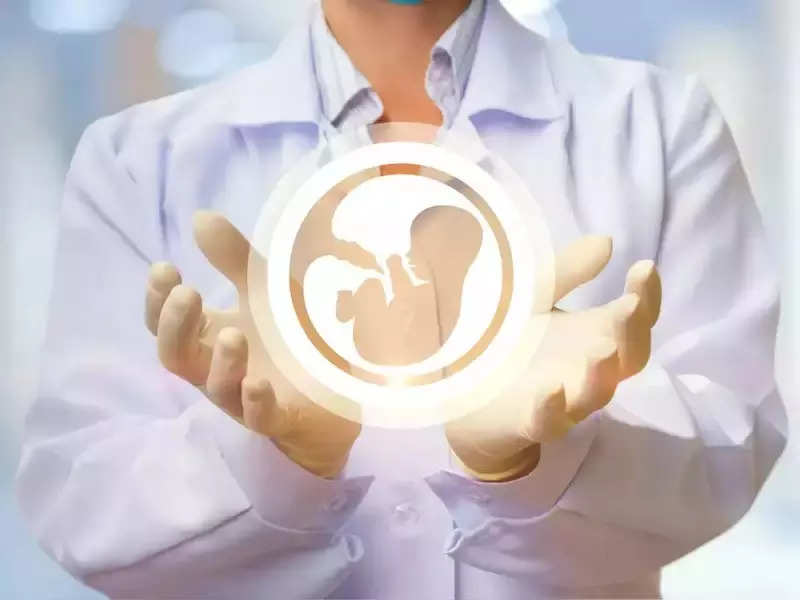
KOLKATA: Come October and the world’s first two test-tube babies — Louise Brown from London and Durga from Mumbai — will be sharing the dais for a noble cause in Kolkata. The two women, born 67 days apart in 1978, will be part of a campaign to seek a befitting posthumous honour (Bharat Ratna or Padma Bibhushan) for IVF pioneer Subhash Mukhopadhyay.
It will be Brown’s maiden India visit and the first time she sees Kanupriya Agarwal alias Durga. But the historic occasion would assume greater significance as the two 43-year-olds join hands supporting the crusade to bring justice to a forgotten scientist, especially since the man was instrumental in creating one of them. The campaign will be launched this Saturday in the city by the Birth Inspire Foundation, Indian Society of Assisted Reproduction (ISAR) and Academy of Clinical Embryologists (ACE) in the presence of intellectuals and the city’s who’s who.
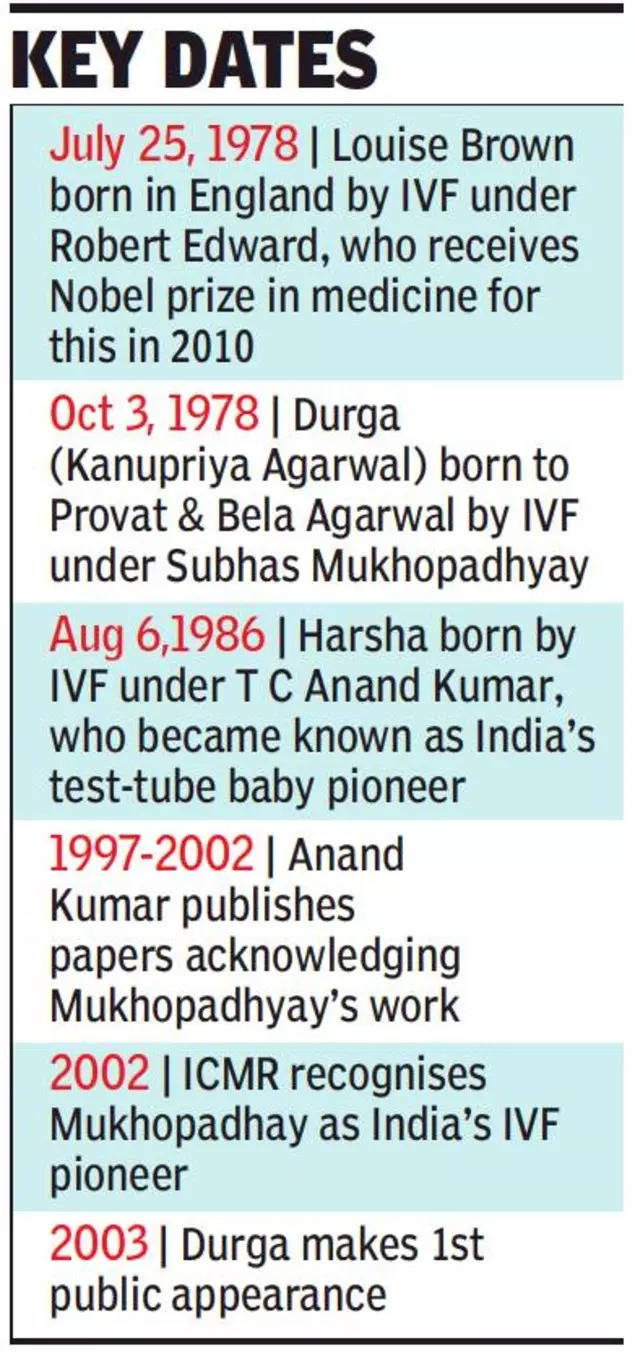
Durga, so christened by Mukhopadhay to keep her identity a secret, was born on October 3, 1978. While Brown’s scientific father, Robert G Edwards, is hailed as the father of IVF and was honoured with the Nobel prize, Mukhopadhyay faced humiliation and a government inquiry in December 1978. On June 19, 1981, the architect of India’s first IVF baby ended his life at home in Kolkata.
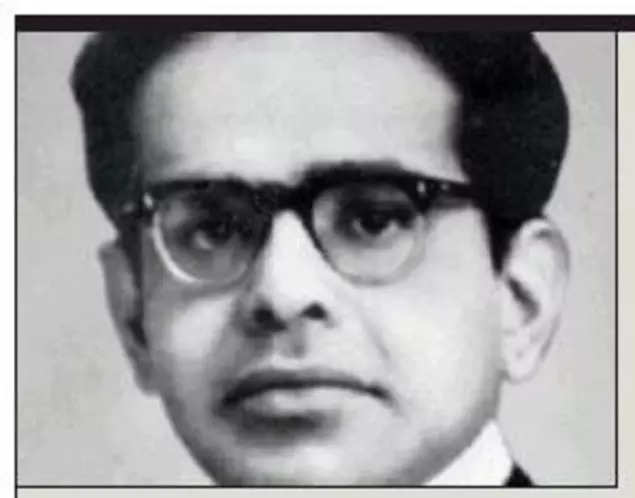
But the main event is scheduled a month later. “We want the Centre to declare October 3, the day India’s first IVF and one of the world’s first frozen embryo-transfer babies was born, to be declared National Fertility Day. We are organizing an international conference of the Academy of Clinical Embryologists here from October 1-3, where the petition for Mukhopadhyay’s recognition will be reiterated in the presence of Louse Brown, Durga and a host of international experts,” said Gautam Khastgir, chairperson, Birth Inspire Foundation, ISAR’s Bengal chapter and organizing chairperson of ACE conference 2021.
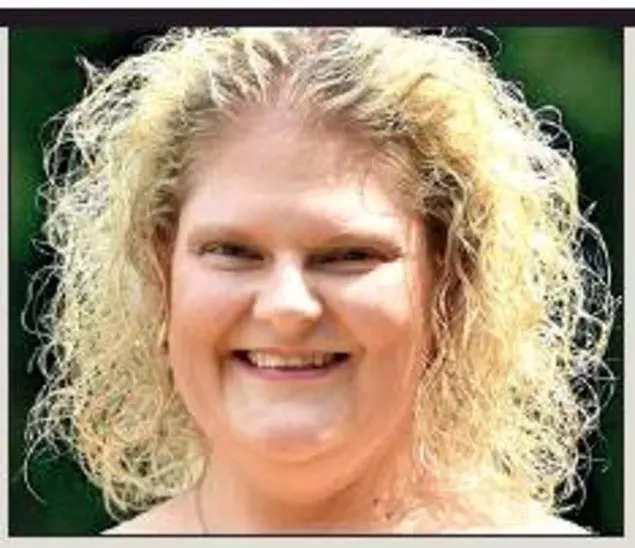
Durga, christened by Mukhopadhay himself to keep her identity under wraps, was born on October 3, 1978. While Brown’s scientific father, Robert G Edwards, professor emeritus, University of Cambridge, is hailed as the father of IVF and was honoured with the Nobel prize in medicine, Mukhopadhyay had to face humiliation and a government inquiry in December 1978. On June 19, 1981, the architect of India’s first test-tube baby ended his life in his Southern Avenue flat, inspiring Tapan Sinha to make the acclaimed film, “Ek Doctor Ki Maut”.
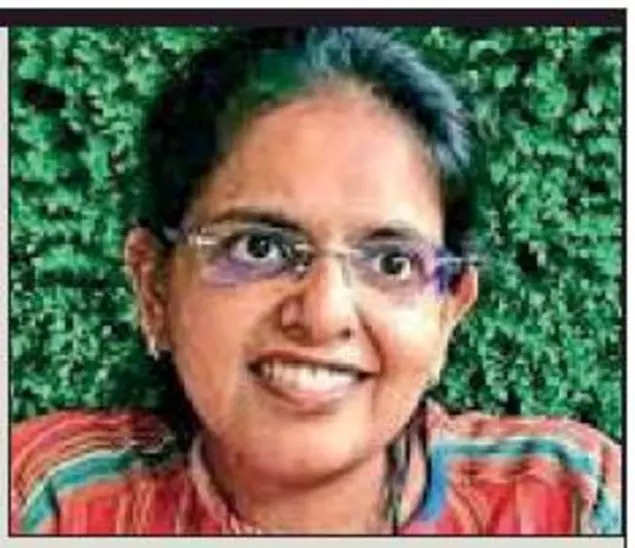
Years after his death, Durga (Kanupriya Agarwal) came forward on her 25th birthday to tell the world that she was born because of Mukhopadhyay’s treatment.
TOI on August 10 reported that Mukhopadhyay finally got government recognition with the the NRS Boys Hostel being named after him and a decision to install his bust in the campus and preserve his room. But Khastgir, who has been raising the issue since 2000, says the man deserves a lot more. “We have written to the Union health ministry seeking a Bharat Ratna or even a Padma Bibhushan for him. After all, he invented the easiest and most successful test-tube baby technique.”
“The Dictionary of Medical Biography features only three scientists from Kolkata. Mukhopadhyay is one of them, the other two being Sir Ronald Ross and Sir U N Brahmachari. But we don’t even have a street named after him,” rued Khastgir.







